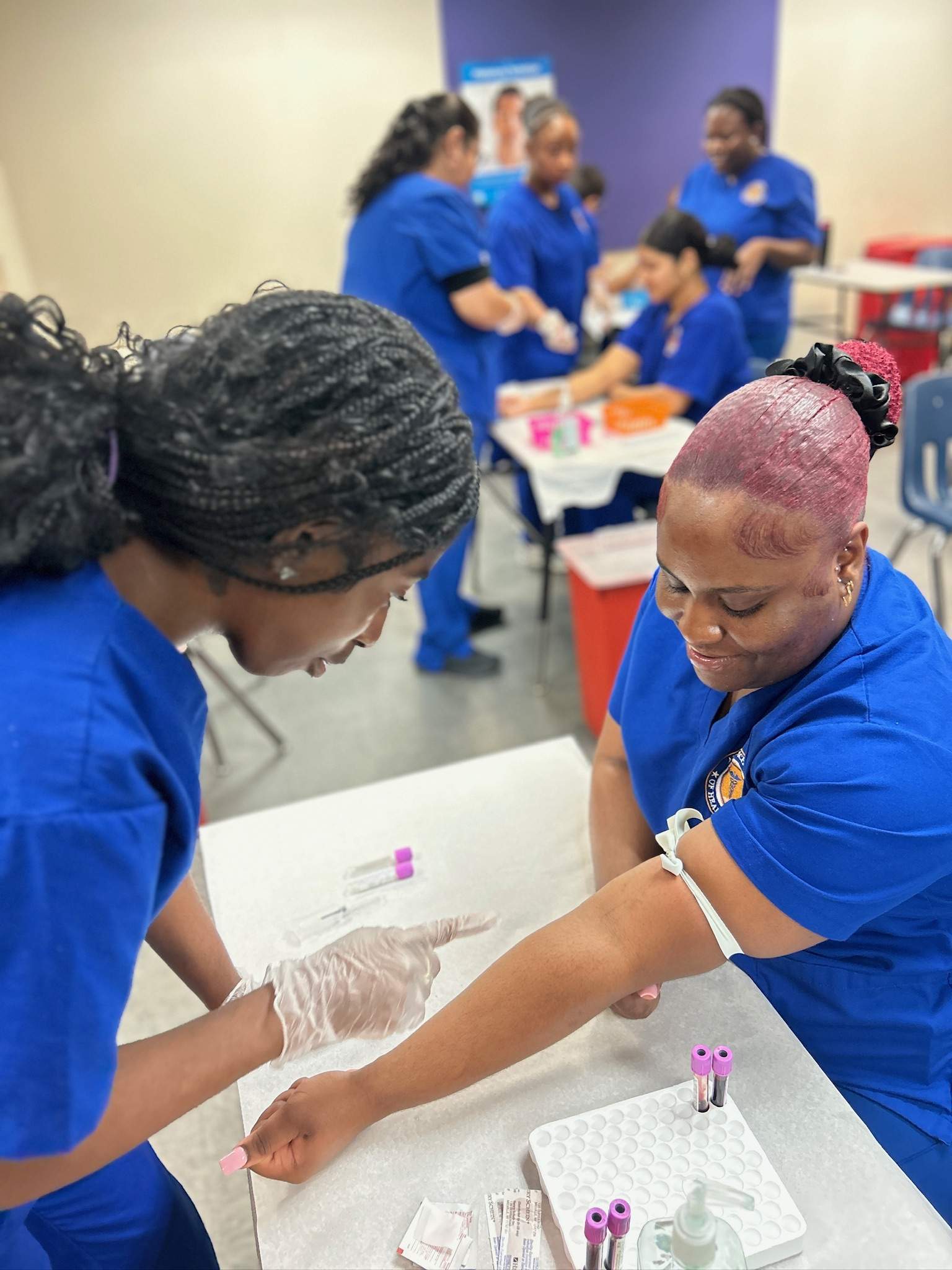Importance of Hands-On Clinical Learning
In the ever-evolving field of healthcare, practical skills are just as crucial as theoretical knowledge, especially for medical assistants who play a vital role in patient care. One of the most effective ways to develop these skills is through hands-on learning in a clinical classroom setting. Here’s why this learning approach is essential for aspiring medical assistants.
Bridging Theory and Practice:
While textbooks provide foundational knowledge, hands-on learning bridges the gap between theory and practice. In a clinical classroom, students engage with real-world scenarios, allowing them to apply the concepts they’ve learned in lectures. This integration enhances comprehension and retention, making it easier for students to recall information when needed in real-life situations.
Skill Mastery through Practice:
Medical assistants perform a wide range of clinical tasks, from taking vital signs to assisting in minor surgical procedures. Hands-on learning at the Allen School of Health Sciences enables students to practice these skills repeatedly in a supportive environment, increasing their proficiency and confidence. Mastery is achieved not just through understanding but through practice, and this is where clinical classrooms shine.
Simulating Real-World Scenarios:
Clinical classrooms often incorporate simulations that mimic real healthcare situations, allowing students to experience the pressures and dynamics of a medical setting without the stakes of actual patient care. These scenarios prepare students for the realities of their roles by helping them develop critical thinking, problem-solving, and decision-making skills in a safe environment.
Building Technical Competence:
Hands-on training in a clinical setting allows students to become familiar with medical equipment, tools, and technology essential to the role of a medical assistant. Whether it’s learning to use an electronic health record system or mastering the art of phlebotomy, students gain the technical competence needed to excel in their future careers.
Enhancing Team Collaboration:
Healthcare is a collaborative field, and hands-on learning encourages students to work in teams, just as they will in a professional setting. These group activities foster communication, teamwork, and leadership skills, enabling students to learn how to work effectively with colleagues in a healthcare environment, enhancing overall patient care.
Fostering Confidence and Professionalism:
Exposure to hands-on experiences in a clinical classroom setting helps students build confidence in their abilities. As they practice and refine their skills, they develop a sense of professionalism that will carry over into their interactions with patients and healthcare professionals. This self-assurance is invaluable as they transition into their roles in the workforce.
Immediate Feedback and Guidance:
One of the major advantages of hands-on learning is the ability to receive immediate feedback from instructors. Instructors can observe student performance, provide constructive criticism, and offer guidance in real-time. Allen School medical assistant instructors with real-world experience provide valuable insights, practical knowledge, and essential networking opportunities. This personal support helps students correct mistakes, enhance their techniques, and deepen their understanding of clinical procedures. Preparing them for a successful career in the healthcare field.
Preparing for Certification Exams
Many certification exams like the Registered Medical Assistant (RMA) for medical assistants includes a practical component. Hands-on training directly aligns with the skills tested in these examinations. By participating in clinical learning environments, students enhance their readiness for certification, boosting their employability prospects upon graduation.
Conclusion:
Hands-on learning in a clinical classroom is a cornerstone of the Allen School of Health Sciences medical assistant program. It equips students with the practical skills and confidence needed to excel in a rapidly changing healthcare landscape. By engaging in hands-on experiences, aspiring medical assistants not only enhance their technical competencies but also develop essential soft skills such as teamwork, communication, and professionalism. As they prepare to embark on their careers in healthcare, the benefits of hands-on learning will undoubtedly serve them well, ensuring they provide high-quality care to their patients in the future. Investing in this valuable educational experience is a step towards a successful and impactful career as a medical assistant. To learn more, contact the Allen School of Health Sciences today!

